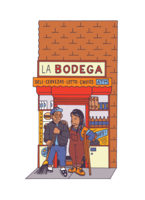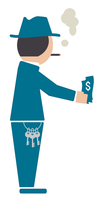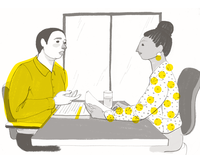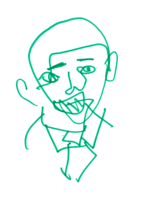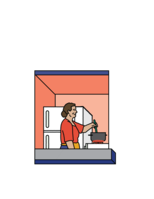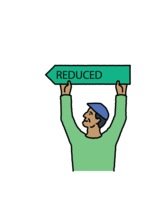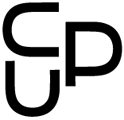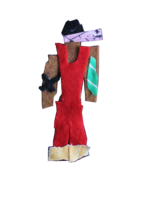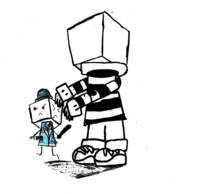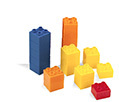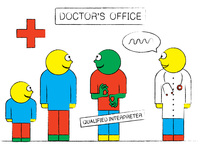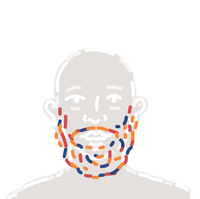Announcing the First 2020 Public Access Design Collaborations!

We’re thrilled to announce our latest round of Public Access Design collaborations, selected by our amazing jury! Over the next year we’ll be working with these fierce advocates and designers to create visual explanations of complicated policy issues.
How to Access Mental Health Recovery Services with the Mental Health Project at the Urban Justice Center, 2019 Public Access Design Fellow Sean Suchara, and CUP staff members Amanda Finuccio and Elijah Bobo. Together, we will create a project that explains how people with Medicaid, who are eligible for HARP (Health and Recovery Plans), can apply for and access a range of mental health services.
During this first meeting, Frankie Hermann and Rachel Gerson from the Mental Health Project taught us where HARP comes from, what it is, who is eligible, and the complex series of steps it takes to apply and ultimately access services. Also, Sean shared a sample of his work so that we could see and learn how he thinks through his design decisions and the unique skills he brings to this project. Together, we look forward to creating a supportive and clear project about Medicaid HARP with those who depend on it.
The Rights of Transgender, Gender non-confirming, Intersex, and Nonbinary people Who Are Incarcerated in NYC and NYS, with The Legal Aid Society and The Bronx Defenders, 2020 Public Access Design Fellows D Wang Shi Zhao and Chloe Chang, and CUP staff members Sucharitha Yelimeli and Clair Beltran. Together, we will create a tool that helps transgender people and their advocates learn and protect their rights, which include being housed safely and consistently with their gender while incarcerated in the NYC Department of Correction (DOC) jails or NYS prisons (NYS-DOCCS).
At our first meeting, Deborah Lolai from The Bronx Defenders and Dori Lewis from The Legal Aid Society led a presentation on the difficulties TGNCINB people often face trying to be housed safely within New York jails and prisons, the recent advocacy efforts around getting them more rights and safer housing, and points in the legal process when it is crucial that they advocate for themselves. D Wang and Chloe also shared with us their design approaches and how they will put their skills together to design this tool. Together, we are looking forward to creating a much-needed tool to support TGNCINB people during a difficult time.
